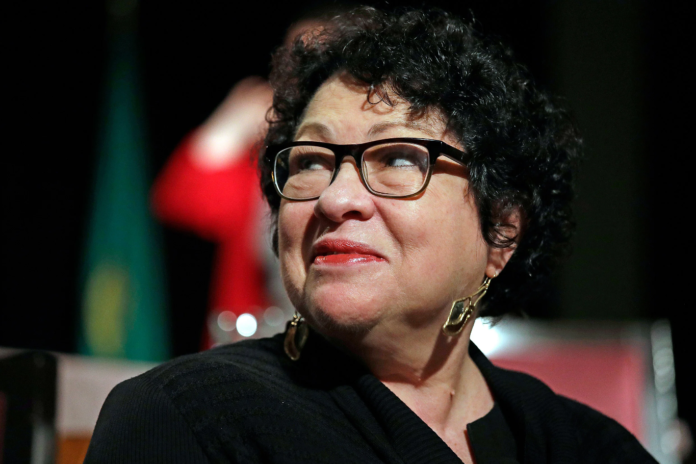In the swirling political theater that surrounds the U.S. Supreme Court, a fresh controversy has emerged: Should Justice Sonia Sotomayor resign before the 2024 presidential election? According to recent polls, a plurality of Americans believe the answer is a resounding no. This push for her early retirement, allegedly to allow President Joe Biden to appoint a younger, equally liberal successor, smacks of both sexism and ableism, undermining the very principles of justice and equality that the Court is meant to uphold.
Justice Sotomayor, appointed by former President Barack Obama in 2009, is not just any justice; she is a symbol of progress and a fighter for the underrepresented. Yet, the narrative building around her potential resignation is troubling. Critics argue that at 69 and managing Type 1 diabetes, she should step down for the sake of strategic political maneuvering. This line of reasoning is dangerously flawed.
Firstly, let’s consider the public sentiment. According to an Economist/YouGov poll, only 31% of voters think Sotomayor should retire now, while a larger segment, 40%, want her to continue her judicial duties. Contrast this with the higher percentages calling for the retirement of conservative Justices Samuel Alito and Clarence Thomas, and a picture emerges of a public that respects Sotomayor’s contributions and wishes to see her maintain her position.
The argument for her resignation hinges heavily on speculative future scenarios—like a potential 7-2 conservative supermajority if Trump were re-elected and she vacated her seat. While these concerns are not unfounded, given the drastic shift in the Court’s balance following Justice Ruth Bader Ginsburg’s death, they also underscore a reactive rather than proactive approach to judiciary politics.
Moreover, the notion that Sotomayor, because of her health condition, is somehow less capable of fulfilling her duties is a stark manifestation of ableism. High-profile disability rights activists have rightly condemned this as discriminatory. Mia Ives-Rublee of the Center for American Progress pointed out that calls for her resignation not only stigmatize disability but also strip away her bodily autonomy—a right fiercely defended in other arenas of social justice.
Additionally, there’s a significant sexist undertone to the debate. Critics like Dahlia Lithwick have highlighted how the burden of maintaining the Court’s reputation disproportionately falls on its female justices. This “second shift,” where women must manage both their professional responsibilities and the Court’s integrity, reflects broader societal expectations placed unfairly on women’s shoulders.
The push for Sotomayor to resign is more than just a strategic blunder; it is a reflection of deeper societal biases that we must actively challenge. If we value justice and equality, we must defend not only the rights that the Supreme Court protects but also those who sit on its bench. Justice Sotomayor deserves to serve on her own terms, free from undue pressure rooted in discrimination.
As we navigate these complex times, let us not be swayed by short-term political gains at the expense of long-term principles. Sotomayor’s voice on the Supreme Court remains as vital as ever, not just for the rulings she may influence, but for the standard she sets in standing against the tide of bias that threatens to undermine our nation’s most cherished institutions.



